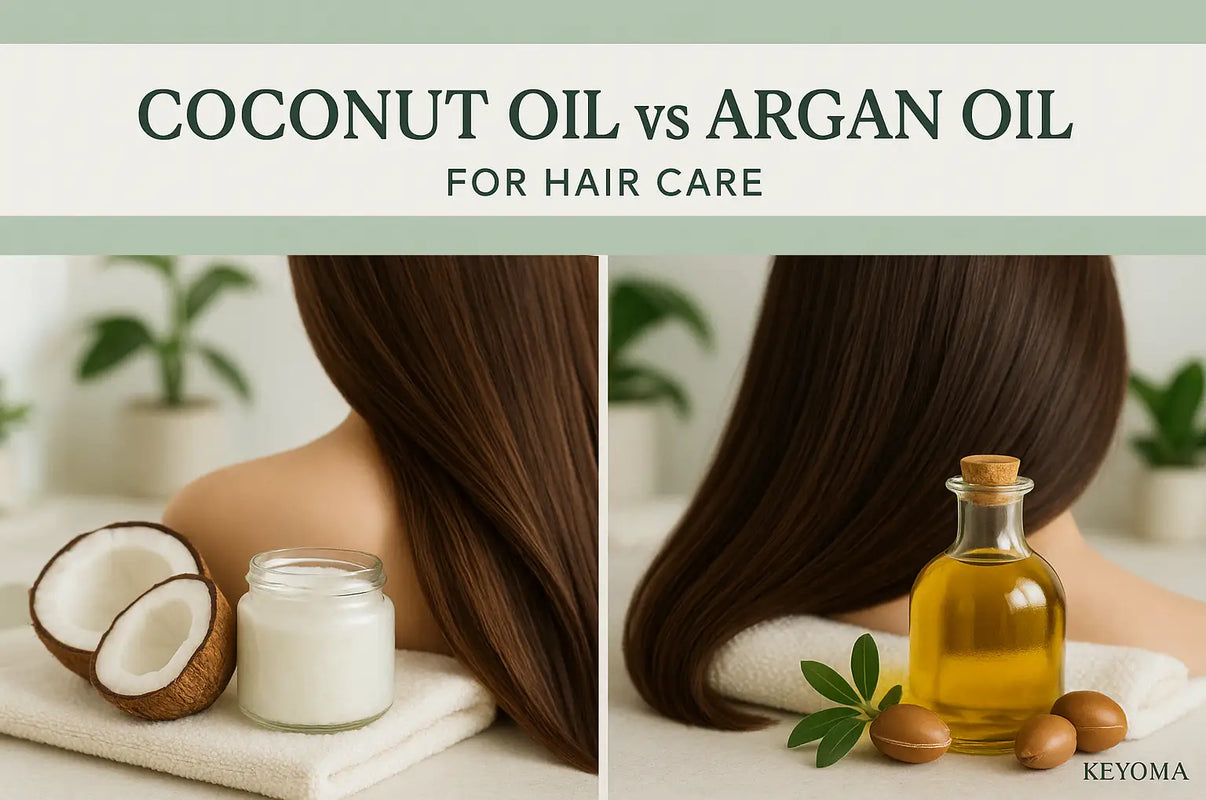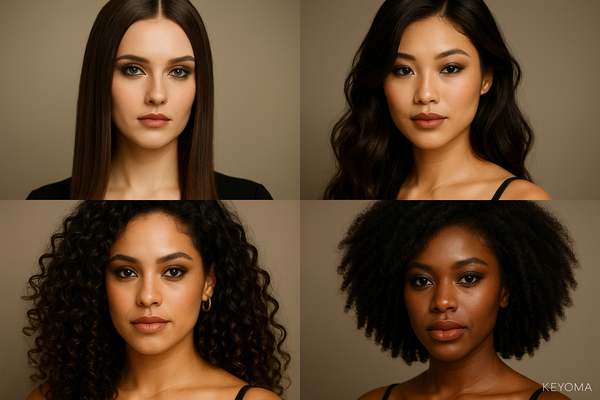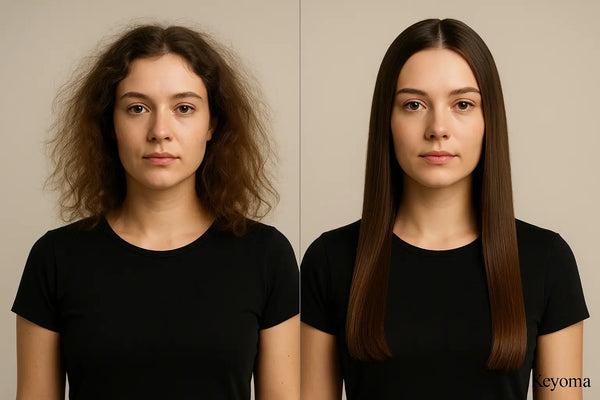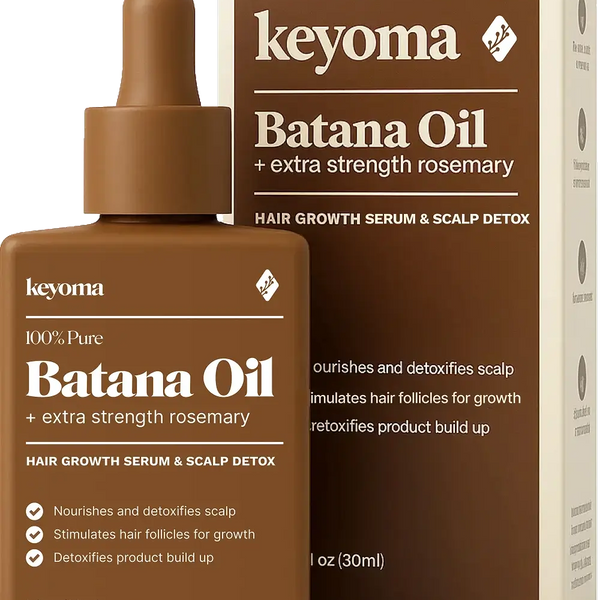Last updated
Aug 09, 2025
Coconut Oil vs Argan Oil for Hair Care
Published on
Aug 09, 2025

In this article
You have likely heard argan oil and coconut oil mentioned in hair and skin care discussions more than once. Oils have become increasingly popular, but with so many choices, it can be hard to know which one suits you best.
Here is a closer look at argan oil versus coconut oil to help you decide which option will work best for achieving your hair goals.
Key takeaways
-
Coconut oil, extracted from coconuts, penetrates the hair shaft to reduce protein loss, nourish deeply, and may help with dandruff, lice prevention, and mild sun protection.
-
Argan oil, derived from Moroccan argan tree nuts, is rich in antioxidants and fatty acids that moisturize, add shine, protect against heat and UV damage, and improve scalp health.
-
For skin, argan oil is lightweight, absorbs quickly, and supports elasticity, while coconut oil is heavier, highly moisturizing, and beneficial for very dry or rough skin.
-
For hair, coconut oil suits deep conditioning and repair, but can feel heavy on fine hair; argan oil is lighter, controls frizz, and works well for daily use on all hair types.
-
The choice depends on hair type, desired results, and budget—coconut oil is more affordable, argan oil is pricier but versatile.
-
Using high-quality, cold-pressed oils like Keyoma’s pure batana oil with rosemary maximizes benefits and minimizes irritation.
What is Coconut Oil and Its Role in Hair Care
Coconut oil is a natural oil derived from the fatty coconut fruit and is widely used in both cooking and beauty care. While some praise it as a high-fat superfood and others criticize it for its high saturated fat content, its use in beauty routines is far less debated.
Like argan oil, coconut oil offers multiple benefits for skin and hair. It is rich in fatty acids that help nourish and hydrate, making it a popular choice for moisturizing dry skin, conditioning hair, and even soothing chapped lips.
Explore the benefits of using coconut oil and batana oil
Coconut Oil Benefits for Healthy Hair
Coconut oil may offer additional benefits for hair, though many have not been fully confirmed in controlled studies.
Possible benefits include:
-
Lice prevention – A small study found that a coconut oil and anise spray was 40% more effective at treating head lice than the chemical treatment permethrin.
-
Sun protection – Some lab and skin studies suggest coconut oil has a natural SPF of about 8, which may help protect hair from UV damage.
-
Dandruff treatment – While no studies have focused solely on coconut oil, its antimicrobial properties may help manage dandruff caused by fungal or yeast overgrowth.
-
Hair loss prevention – By keeping the hair shaft healthy, coconut oil can help reduce damage from excessive grooming, which in severe cases can lead to hair loss.
Although some people claim that eating coconut oil improves hair health, there is little scientific evidence to support this.
What is Argan Oil and How It Helps Hair
Argan oil is a natural ingredient commonly used in products for hair, skin, and nails. It is extracted from the nut, or “fruit,” of the argan tree, which grows only in Morocco.
For centuries, argan oil has been valued both as a culinary ingredient and as a natural remedy for hair, skin, and nail care. It is naturally rich in antioxidants and fatty acids, which are important for keeping skin healthy, strong, and well moisturized.
Learn which one is better, argan oil or batana oil?
Argan Oil Benefits for Hair Strength and Shine
Argan oil is packed with fatty acids and potent antioxidants like vitamin E, offering multiple benefits for both scalp and hair health.
Possible benefits include:
-
Moisturizing and conditioning – Rich in oleic and linoleic acids, argan oil locks in moisture, prevents dryness, reduces frizz, and adds shine.
-
Improving scalp health – Its anti-inflammatory and antioxidant properties can help with scalp conditions such as psoriasis, seborrheic dermatitis, and dandruff caused by yeast-like fungus.
-
Preventing styling and coloring damage – The medium-chain fatty acids form a protective barrier that reduces damage from heat styling, chemical treatments, and hair dye, while improving manageability and limiting split ends.
-
Offering sun protection – Its antioxidant activity may help protect hair from UV-related dryness and damage.
-
Supporting overall hair health – Nourishing fatty acids and antioxidants keep hair hydrated, smooth, and resilient, reducing breakage and shedding.
Common Uses of Argan Oil and Coconut Oil
Coconut oil and argan oil have both become popular in skincare and hair care routines for their versatility and wide range of potential benefits.

Skin Care Uses
-
Coconut oil – Known for its strong moisturizing abilities, coconut oil is often used to soften and hydrate dry, rough skin. Its natural antimicrobial properties may also help manage certain skin infections and conditions such as eczema.
-
Argan oil – Lightweight and quick to absorb, argan oil works well as a moisturizer for all skin types. Packed with antioxidants, it can help improve skin elasticity and reduce the appearance of fine lines and wrinkles.
Did you know that you can also use batana oil for your skin?
Face Care Uses
-
Coconut oil – Often used as a makeup remover and facial cleanser, coconut oil helps dissolve makeup while nourishing the skin, leaving it soft and hydrated.
-
Argan oil – Frequently chosen as a facial serum, argan oil hydrates and balances the skin without clogging pores. It may also help reduce redness and soothe irritation.
Hair Care Uses
-
Coconut oil – Commonly used as a hair conditioner or mask, coconut oil’s molecular structure allows it to penetrate the hair shaft, delivering deep nourishment and helping to reduce protein loss.
-
Argan oil – Often used as a frizz-control serum and leave-in conditioner, argan oil adds shine and smoothness, making it especially beneficial for dry or damaged hair.
Choosing Between Argan Oil and Coconut Oil for Hair
In hair care, both coconut oil and argan oil provide distinct benefits, and the better choice depends on your hair type and needs.
 Coconut oil
Coconut oil
-
Pros: Deeply nourishes, helps reduce protein loss, and is affordable.
-
Cons: Can feel heavy on fine hair and may cause build-up if not washed out thoroughly.
Argan oil
-
Pros: Lightweight, adds shine, reduces frizz, and works well for all hair types.
-
Cons: Generally more expensive than coconut oil.
Nourish Your Hair with Keyoma’s Hair Strengthening Oils
Both argan oil and coconut oil bring valuable benefits to skincare and hair care routines. For skin, argan oil’s lightweight texture and anti-aging properties make it suitable for a wide range of skin types, while coconut oil is particularly effective for very dry skin and certain skin conditions.
For hair, coconut oil provides deep nourishment that can repair and strengthen damaged strands, while argan oil offers lightweight hydration and frizz control, making it ideal for daily use without weighing hair down.
The best choice depends on your personal preferences, hair and skin needs, and budget. Trying both can help you see which delivers the results you want. For the best results, always choose high-quality, organic, cold-pressed oils like Keyoma’s pure batana oil with rosemary to maximize benefits and reduce the risk of irritation or unwanted reactions.
Featured Product
100% Pure Batana Oil + Rosemary
Learn more about Batana Oil
Your Cart
Your Cart is empty
Let's fix that
You might like...
Search our store








